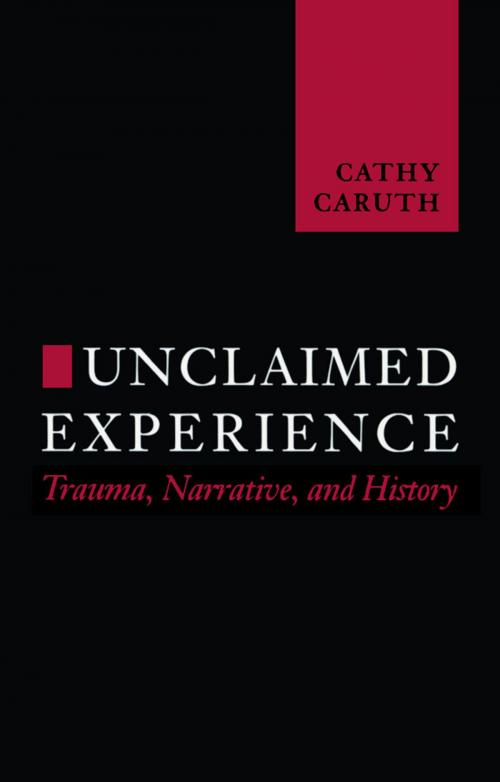Unclaimed Experience
Trauma, Narrative and History
Fiction & Literature, Literary Theory & Criticism, Theory| Author: | Cathy Caruth | ISBN: | 9780801896194 |
| Publisher: | Johns Hopkins University Press | Publication: | March 24, 2010 |
| Imprint: | Language: | English |
| Author: | Cathy Caruth |
| ISBN: | 9780801896194 |
| Publisher: | Johns Hopkins University Press |
| Publication: | March 24, 2010 |
| Imprint: | |
| Language: | English |
"If Freud turns to literature to describe traumatic experience, it is because literature, like psychoanalysis, is interested in the complex relation between knowing and not knowing, and it is at this specific point at which knowing and not knowing intersect that the psychoanalytic theory of traumatic experience and the language of literature meet."—from the Introduction
In Unclaimed Experience, Cathy Caruth proposes that in the "widespread and bewildering experience of trauma" in our century—both in its occurrence and in our attempt to understand it—we can recognize the possibility of a history no longer based on simple models of straightforward experience and reference. Through the notion of trauma, she contends, we come to a new understanding that permits history to arise where immediate understanding is impossible. In her wide-ranging discussion, Caruth engages Freud's theory of trauma as outlined in Moses and Monotheism and Beyond the Pleasure Principle; the notion of reference and the figure of the falling body in de Man, Kleist, and Kant; the narratives of personal catastrophe in Hiroshima mon amour; and the traumatic address in Lecompte's reinterpretation of Freud's narrative of the dream of the burning child.
"If Freud turns to literature to describe traumatic experience, it is because literature, like psychoanalysis, is interested in the complex relation between knowing and not knowing, and it is at this specific point at which knowing and not knowing intersect that the psychoanalytic theory of traumatic experience and the language of literature meet."—from the Introduction
In Unclaimed Experience, Cathy Caruth proposes that in the "widespread and bewildering experience of trauma" in our century—both in its occurrence and in our attempt to understand it—we can recognize the possibility of a history no longer based on simple models of straightforward experience and reference. Through the notion of trauma, she contends, we come to a new understanding that permits history to arise where immediate understanding is impossible. In her wide-ranging discussion, Caruth engages Freud's theory of trauma as outlined in Moses and Monotheism and Beyond the Pleasure Principle; the notion of reference and the figure of the falling body in de Man, Kleist, and Kant; the narratives of personal catastrophe in Hiroshima mon amour; and the traumatic address in Lecompte's reinterpretation of Freud's narrative of the dream of the burning child.















